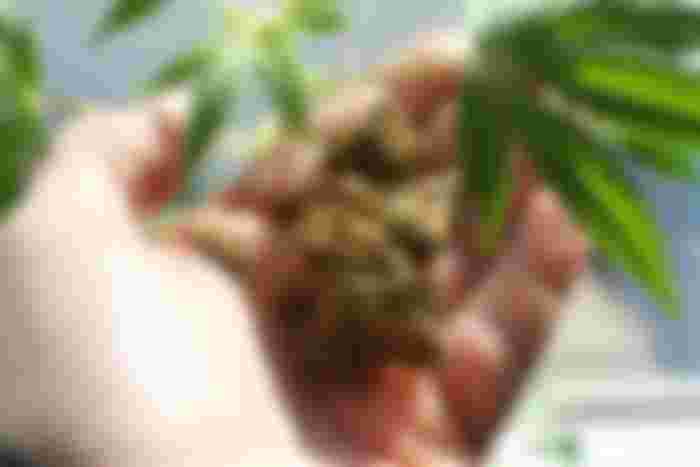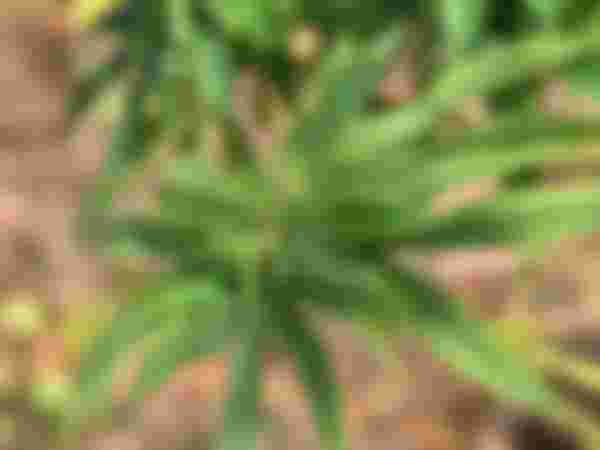Good morning dear virtual friends, how are you today? I didn't sleep for a long time last night, and while watching TV I came across the movie "Totally Blown" so I came up with the idea to share a text about Marijuana with you.

Marijuana use is becoming more common, and claims about its medicinal properties are being heard more and more often. But what do we really know?
Cannabis is not a novelty at all, of course. Mankind has almost always known about him.
In Siberia, charred seeds were found inside burial mounds dating back to 3000 BC. The Chinese used cannabis for medicinal purposes thousands of years ago. Marijuana is also rooted in America - George Washington, the father of the nation, grew hemp on his Mount Vernon estate. For most of American history, cannabis has been legal and common as an ingredient in various tinctures and extracts.
Then propaganda films began to be shown and campaigns were carried out - "Grass Madness", "Marijuana - Youth Killer", "Deadly Grass", "Drugs That Start". This plant has been illegal for almost 70 years, and medical research has largely died out. During the 1970s, the U.S. government made it even more difficult to study marijuana, classifying it as a first-class drug - a dangerous substance without proper medical purpose, with a high potential for abuse, in the same category as heroin. In America, most people who studied cannabis were automatically considered criminals.

But today, as more and more people turn to marijuana for treatment, scientific cannabis research is experiencing a renaissance. We come across surprises, perhaps even miracles hidden inside this long-forbidden plant. Although marijuana is still classified as the first category of drugs, the US Department of Health recently showed interest in scientific knowledge about marijuana and pointed out that preliminary data indicate that "marijuana can be" helpful "in certain medical conditions and symptoms."
In 23 U.S. states and the District of Columbia, cannabis is legal for medical use, and most Americans support the legalization of recreational consumption. Other countries are also questioning their attitude towards grass. Uruguay voted for legalization by a majority. It has been decriminalized in Portugal. Israel, Canada and the Netherlands have programs for the medical use of marijuana, and in recent years a number of countries have liberalized cannabis possession laws.
Simply, the grass is more and more present around us, the air exudes its recognizable and more and more common smell. Yes, smoking weed can cause a temporary surge of unreasonable laughter, intense contemplation of trivial things, amnesia about events from a few seconds ago, and wolf hunger. Although no overdose deaths have ever been reported, marijuana - especially some of today's subtypes - can be a powerful and in some circumstances harmful drug.
However, many people use marijuana to relieve pain, fall asleep easier, improve appetite, and overcome life's blows and falls more easily. Proponents of the herb say it relieves stress. It is also considered useful as an analgesic, antiemetic, bronchodilator and anti-inflammatory agent. It has even been found to help stop hiccups. Some scientists believe that the ingredients of this plant help regulate vital bodily functions - such as protecting the brain from physical and mental damage, strengthening the immune system and helping to "erase memories" after tragic events.
One gets the impression that there is a rush in the public to accept, legalize, regulate, tax and freely place marijuana on the market as soon as possible, so some important questions are opened. What is actually in that plant? How does marijuana really affect our body and mind? What do its chemical ingredients tell us about the functioning of our nervous system? Can these ingredients lead us to the discovery of new useful drugs?
If cannabis has anything to tell us, what is it?
Chemist says "Treasure with treasure"
Until the middle of the 20th century, science did not know the basic facts about marijuana. It was a mystery what was in it and how it worked. Due to its illegality and bad image, few scientists wanted to tarnish their reputation by studying marijuana.

Then one day in 1963, Rafael Mekulam, a young organic chemist from Israel, from the Weissman Institute in the vicinity of Tel Aviv, decided to take a look at the chemical composition of this plant. It was strange to him that morphine was identified and extracted from opium in 1805, and cocaine was extracted from coca in 1855, while science still has no idea what the main psychoactive ingredient is in marijuana. "It was just a plant," recalls Mekulam, who is 84 years old today. "A confused mixture of unknown composition."
Mekulam therefore addressed the Israeli police and provided five kilograms of confiscated Lebanese hashish. He and his research team isolated - and in some cases synthesized - a whole range of substances that he individually injected with laboratory rhesus macaques. Only one produced a visible effect. "Rhesus macaques are usually quite aggressive animals," he says. But when you inject that ingredient into them, the monkeys become extremely calm. "Sleepy, I'd say," he recalls with a smile.
Further research has shown what we all know today: this ingredient is the main psychoactive substance from the plant that affects the brain - an ingredient that "makes" you. Meculam and his colleague discovered tetrahydrocannabinol (THC). With his team, he clarified the chemical structure of cannabidiol (CBD), another important ingredient in marijuana that has a variety of medicinal properties but no psychoactive effects on humans.

Due to these and other discoveries, Mekulam is considered the world's ancestor of scientific research on cannabis. Born in Bulgaria, this sleek gentleman with thinning, gray hair and watery eyes, usually wears elegant tweed jackets, silk scarves and impeccably ironed trousers. He is a distinguished member of the Israeli Academy of Sciences and Arts and an honorary professor at the Hadassah University Medical Center, where he still has his laboratory. He is the author of more than 400 scientific papers and the owner of 25 patents. This benevolent blanket has studied cannabis all his life and calls it "a medical treasure trove of treasure waiting to be discovered." His scientific work has spurred the development of an entire subculture of cannabis research around the world. Although he claims that he has never "blown" personally, he is a famous person in the world of marijuana, and to this day he receives letters from numerous admirers.
Israel has one of the most developed programs for the medical use of marijuana. Mekulam actively participated in the creation of the program and is proud of the results. More than 20,000 patients are licensed to use cannabis to treat conditions such as glaucoma, Crohn's disease, inflammation, loss of appetite, Tourette's syndrome and asthma.
Nevertheless, McAlam is not a big proponent of legalizing cannabis for recreational use. He does not think that people should be arrested because they possess marijuana, but he claims that "it is not a harmless substance" - especially for young people. He cites research results that show that long-term marijuana consumption with a high percentage of THC can affect brain development. He notes that in some people, cannabis can cause serious panic attacks. He mentions research that indicates that cannabis can trigger the development of schizophrenia in people who have a genetic predisposition for the disease.

McCulam believes that often irresponsible and foolish attitudes about the recreational use of marijuana should give way to a responsible and scientific approach to the plant - but only for medical purposes, with strict regulation and thorough study. "At the moment, people don't know what they're buying. For something to be medically justified, it has to be quantified. If you can't determine the quantity, then it's not science."
In 1992, the search for quantification dragged the ecclesiate from the plant itself to the depths of the human brain. That year, he made an extraordinary discovery with a group of colleagues. They isolated a compound that is produced in the human body and binds to the same receptor in the brain to which THC binds. McCulam called this compound anandamide - from the Sanskrit word for "indescribable joy".
Since then, several more so-called endocannabinoids and their receptors have been found. Scientists have determined that endocannabinoids act on a special nervous network - similar to the endorphins, serotonin and dopamine. Research shows that physical activity, says Mekulam, raises the level of endocannabinoids in the brain, "which is probably what running enthusiasts describe as a feeling of euphoric pleasure while doing it." These compounds, he explains, obviously play an important role in basic functions such as memory, balance, movement, immunity and neuroprotection.
Pharmaceutical companies that produce cannabis-based drugs generally try to isolate a certain ingredient from the plant. But McLuham believes that in some cases, these compounds have a much better effect in the presence of other marijuana ingredients. He calls it a group effect and says it is just one of the secrets of cannabis that requires deeper study.
"We've just scratched the surface. I'm very sorry I don't have another lifetime to devote to it because it may be revealed that cannabinoids have something to do with all human diseases." - Mekulam
Botanist says "Light of day"
A spacious 4,000-square-foot building extends across from the police station in the Denver industrial zone. The building is just one in a series of purposefully remodeled former warehouses in the part of the city that is now informally called the Green Mile. From the outside, there is nothing to indicate the type of activity. The door buzzes open and I am greeted by the main grower of "Mindful", one of the world's largest cannabis production companies. Philip Hague, a 38-year-old druid-like man with piercing blue eyes, a military-like uniform and deep shoes, smiles suspiciously like someone who - due to previously unimaginable circumstances - found his life's calling.

Hague describes himself as a plant grower who has been dedicated to gardening since the age of eight, and as a great admirer of the famous botanist and agronomist Luther Berbank. Hague has been growing flowers and ornamental plants on the family estate in Texas for years. But now his attention is focused on much more lucrative buds.
Through several company offices in the lobby, Hague introduces me deeper into the interior of the building. The company stores seeds from Asia, India, North Africa, and the Caribbean in refrigerators. Hague has traveled the world collecting marijuana seeds and is very interested in the biological diversity of this plant throughout history. Its bank of seeds of rare, wild and ancient subspecies of cannabis is a significant part of the production to which "Mindful" has exclusive rights.

"We have to understand that humans evolved along with that plant, practically from time immemorial. It is older than literacy. Cannabis is a part of us, it has always been. After the last ice age from Central Asia, it spread with man to the rest of the planet." - Hague
Hague joined the green revolution in the state of Colorado almost at the very beginning. When the US Department of Justice announced in 2009 that it would not prosecute people who meet the prescribed conditions for the medical use of marijuana, Hague told his wife: "We are moving to Denver." He now runs one of the world's most famous "plantations" in which more than 20,000 plants grow.
THC in Space
A meteorite found in the Nevada desert in 2010 was recently thoroughly analyzed, and what scientists found on it is, to put it mildly, astonishing.
Namely, microbacterial analysis showed that a fragment of this material contains tetraidrocannabinol (THC), which, although it can be found in many plants, is best known as an ingredient in hemp.

The team that conducted this research is led by James Hahn, an astrophysicist specializing in astrobiology. He pointed out that this is an extremely important discovery, which will have a great impact on astrobiology in general.
"If the chemical substances that change brain functions, which results in changes in the perception, mood and state of consciousness in humans, originate from space, what role do the influences from space have on the human species. Or life on our planet in general? This finding raises more questions than it provides answers. ”James Hahn
This is not the first time that tetraidrocannabinol has been found on a sample of a body that fell to Earth from space - experts from the University of Mexico also observed THC on a part of a meteorite in 2009, but their findings were rejected as a "controversial discovery".

THC is the main ingredient in marijuana and it is precisely this that provides the characteristic state into which the users of this plant fall. This substance was discovered in 1964, in the laboratory of the Israeli scientist Dr. Rafale Meshulam. It is little known that THC also relieves pain, nausea and symptoms of depression, and that, although its use is banned in most parts of the world, pharmaceutical companies have been legally producing drugs that contain its synthetic variants for decades.
Some interesting facts about cannabis
When did people start using it?
The Anti-Drug Museum in Arlington, Virginia, states that the oldest written records of cannabis date back to 2727 BC, when Chinese Emperor Shen Nung allegedly discovered the substance and used it for medical purposes.
But there is also a problem with the presumed fact: Shen Nung, if he existed, was not the Chinese emperor. The first emperor of a united China was Qin Shi Huang, born around 260 BC - much later than his superior Shen Nung. To this day, it is not entirely clear how Shen Nung kept records of his medical experiments.
However, what is known for sure is that the ancient Taiwanese used hemp fibers to decorate pottery about 10,000 years ago, which was published in the magazine of Yale University in 1968.
It is an excellent material for making rope
Contrary to popular belief, hemp is not only used for smoking. Its fibers are used to make rope or fabric, and it is in this form that it has recently been used to transport replicas of statues from Easter Islands.
In 2012, archaeologists tried to move a 4.35-ton copy of the statue from Easter Island. Trying to understand how ancient people did it, archaeologist Carl Lipo from the University of California concluded that all they needed was hemp rope. Then a team of 18 people moved the statue in less than an hour.
Industrial hemp or marijuana - what's the difference?
It is the same plant species, Cannabis sativa, and the difference between these two plants is the percentage of psychoactive ingredients. Industrial hemp does not produce THCA (tetrahydrocannabinol acid), a biosynthetic precursor of tetrahydrocannabinol, psychoactive components of cannabis. According to biochemist John Page of the University of Saskatchewan, the hemp plant lacks the gene responsible for the enzyme produced by THCA.
It's not just people who use it
According to an article published in 2013 in the Journal of the American Veterinary Medical Association, there is a small percentage of pet owners, marijuana users, who share it with their furry friends. The effect usually passes in a few hours, but experts point out that it can be fatal, especially in the case of using a dose connection.
Does your heart (dis) love Marijuana?
As part of a study conducted in April 2014, researchers analyzed 2,000 cases of complications caused by marijuana use and determined that two percent included heart problems, including nine heart attacks.
Baby soap
In an unusual case, an increased number of newborns were noticed in a hospital in North Carolina, who tested positive for cannabis during urine testing. At first, experts believed that mothers used marijuana, but later research, in 2012, determined that cannabis was found in a type of baby soap, which was published in the journal Clinical Biochemistry.
I hope that by reading this article you have learned a lot of new useful information and resolved your doubts about Marinuana. I wish you a nice day. Regards to all @Jigglyspy

Photos of usage in this post can be found at www.google.com
If you haven't read my new articles here are links to them:
The creator of children's fantasy
That is how the legends said goodbye to the world
Events that Serbia does not forget are shown in photographs
A man with a big heart / Covek velikog srca
Breastfeeding - good for the baby but also for mom / Dojenje - dobro za bebu ali i za mamu










wow this is super cool! you put a lot of work into the history of this! thank you so much for your time! again =P